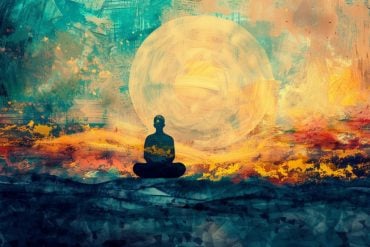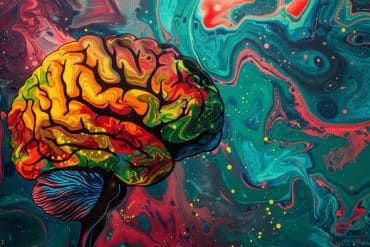Summary: Study investigates suffering-induced transformational experiences to help reveal what the meaning of life could actually be.
Source: The Conversation
The search for meaning in life is a familiar challenge to many of us. Some materialist scientists and philosophers consider it a futile search. Prominent atheist Richard Dawkins, for example, claims that human beings are just “throwaway survival machines” whose only purpose is to survive and replicate genes.
Otherwise, the theory goes, there is very little point to our lives. We may attempt to create other kinds of meaning, through religion or attempts at altruism for example, but all we’re really doing is following our genetic and neurological programming. Even our consciousness, the feeling of having experience inside our own heads, may not really exist, or may exist only as a kind of shadow of our brain activity.
But I take the rather unfashionable view that there is meaning to life. As I suggest in my book Spiritual Science, it is absurd to reduce human life and behaviour to purely genetic factors.
We are not just ghostly entities living inside machine-like bodies in an indifferent world. Human life is not a meaningless space between birth and death, spent trying to enjoy ourselves and forget about our predicament.
I believe that human life and the world mean much more than that. And this is not because I am religious – I am not.
Instead, my perspective is informed by my scientific research over the past ten years with people who have undergone what I call “suffering-induced transformational experiences”.
These experiences include being diagnosed with terminal cancer, or suffering bereavements, or becoming seriously disabled, or losing everything through addiction or having close encounters with death during combat.
What all these people had in common is after undergoing intense suffering, they felt they had “woken up”. They stopped taking life, the world and other people for granted and gained a massive sense of appreciation for everything.
They spoke of a sense of the preciousness of life, their own bodies, the other people in their lives and the beauty and wonder of nature. They felt a new sense of connection with other people, the natural world and the universe.
They became less materialistic and more altruistic. Possessions and career advancement became trivial, while love, creativity and altruism became much more important. They felt intensely alive.
One woman whose cancer was in remission said: “I’m just so, so fortunate to be alive on this planet. I just feel so privileged to be on this Earth and to have been given this awareness.”
A recovering alcoholic told me of feeling comforted and empowered, “knowing that you are a part of something far more wonderful, far more mysterious”.
A person who had nearly drowned described acquiring “a great sense of appreciation for the little things, not just the spectacular beauty of a flowering tree, but the beauty of even the most insignificant objects”.
A man who experienced a transformation due to bereavement addressed the topic of meaning specifically, describing how his “goals changed from wanting to have as much money as possible to wishing to be the best person possible”. He added: “Before I would say I didn’t really have any sense of a meaning of life. However, [now] I feel the meaning of life is to learn, grow, and experience.”
Awakening
It’s important to point out that none of these people were (or became) religious. They didn’t have the kind of “born-again” experience some Christians talk about, although many people did feel as if they had a new kind of identity, even to the point of feeling like they were, as one person put it, a different person living in the same body.
Also, the changes weren’t merely temporary, and in most cases, remained stable over many years. Overall, the transformation can be described in terms of finding new meaning in life.
Fortunately, we don’t just have to go through intense suffering to experience these effects. There are also certain temporary states of being when we can sense meaning. I call these “awakening experiences”.

Usually these experiences occur when our minds are fairly quiet and we feel at ease with ourselves. When we’re walking in the countryside, swimming in the ocean, or after we’ve meditated or had sex.
At such times there is a sense of “rightness” about things. We can look above us at the sky and sense something benevolent in it, a harmonious atmosphere. We can feel a kind of radiance filling the landscape around us, emanating from the trees and fields. We can sense it flowing between us and other people – as a radiant connection, a sense of warmth and love. We feel glad to be alive and feel a wide-ranging sense of appreciation and gratitude.
In other words, we find the meaning of life when we “wake up” and experience life and the world more fully. In these terms, the sense that life is meaningless is a distorted and limited view that comes when we are slightly “asleep”.
In our highest and clearest states of being, we perceive a meaning that we sense is always there and that somehow we previously missed. When our awareness intensifies and our senses open up there’s a sense of returning home – to meaning. So what is the meaning of life? Put simply, the meaning of life is life itself.
Source:
The Conversation
Media Contacts:
Steve Taylor – The Conversation
Image Source:
The image is in the public domain.







